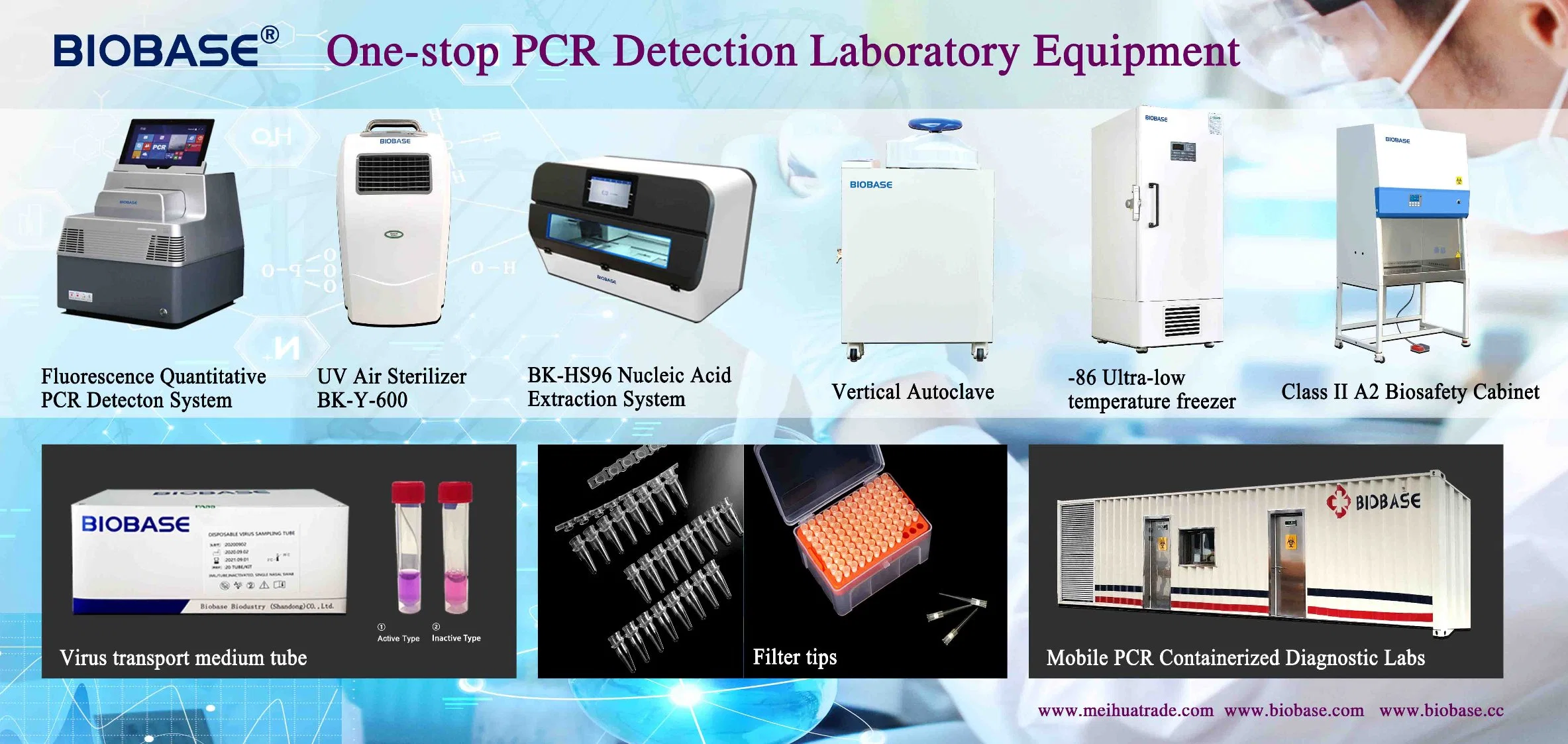In the realm of modern biotechnology, Polymerase Chain Reaction (PCR) machines have revolutionized the way scientists analyze and manipulate DNA. As a cornerstone technology in various fields, including genetics, diagnostics, forensics, and research, the demand for efficient and reliable PCR machines continues to soar. In this context, China has emerged as a dynamic player, hosting a thriving landscape of PCR machine manufacturers that cater to both domestic and international markets.
China’s rapid advancements in biotechnology have been nothing short of remarkable, and its PCR machine manufacturing industry stands as a testament to its prowess in innovation and precision engineering. With a diverse array of manufacturers spread across the country, China offers a wide range of PCR machines designed to meet the specific needs of different industries.
Real-Time PCR Thermal Cycler System

Real-time PCR thermal cycler systems, often referred to simply as real-time PCR machines, represent a pivotal technological advancement in the field of molecular biology and genetic analysis. These systems have revolutionized the way researchers detect and quantify DNA and RNA, enabling precise and efficient monitoring of the amplification process in real time.
Cost of a PCR Machine:

Factors Influencing the Cost of a PCR Machine:
Brand and Model: Well-established brands with a strong reputation in the field of biotechnology may offer more expensive PCR machines due to their reliability, features, and customer support.
Type of PCR: There are different types of PCR machines, such as traditional thermal cyclers, quantitative real-time PCR machines, and digital PCR machines. Real-time PCR machines, which offer continuous monitoring and quantification, tend to be more expensive than traditional thermal cyclers.
Capacity and Throughput: The number of samples a PCR machine can process in a single run affects its price. Machines with higher throughput capabilities often come with a higher price tag.
Temperature Control and Cycling Speed: PCR machines with precise and rapid temperature control may be more expensive due to their advanced engineering.
Detection Methods: If the PCR machine includes advanced detection methods like multiplexing or specific fluorescence detection technologies, it might increase the overall cost.
Software and Data Analysis: Advanced software for data analysis and experiment control can contribute to a higher cost.
Customization Options: Some manufacturers offer customization options to tailor the PCR machine to specific research needs, which can impact the price.
Support and Warranty: Machines that come with comprehensive technical support, training, and warranty coverage may have a higher cost.
Price Range:
At the lower end, basic thermal cyclers might start around a few hundred dollars. More advanced real-time PCR machines can range from a few thousand dollars to tens of thousands of dollars. High-end systems with extensive features and capabilities can reach even higher price points.
It’s important to note that while the initial cost of the machine is a significant consideration, ongoing expenses such as consumables (reagents, plates, tubes), maintenance, and software updates should also be factored into your budget.
When considering the cost of a PCR machine, it’s essential to evaluate your specific research needs, required features, and long-term goals. Conduct thorough research, compare options from different manufacturers, and consider consulting with experts in the field before making a decision.
Which country has the highest demand for PCR machine?
PCR (Polymerase Chain Reaction) machines is widespread and influenced by various factors such as research, diagnostics, healthcare infrastructure, and the prevalence of applications like molecular biology, genetics, virology, and more. While I don’t have access to real-time data beyond that point, I can provide some insights into the regions that traditionally exhibited significant demand for PCR machines up to that time.
United States: The United States has historically been a major consumer of PCR machines due to its advanced research institutions, well-established healthcare system, and a robust biotechnology industry. The country’s demand for PCR machines is driven by research, clinical diagnostics, pharmaceutical development, and various applications in life sciences.
China: China has been rapidly expanding its research and healthcare infrastructure, leading to an increased demand for PCR machines. With a growing emphasis on genomics research, molecular diagnostics, and biotechnology, China’s demand for PCR technology has been on the rise.
Japan: Japan has a strong presence in scientific research and diagnostics. The country’s demand for PCR machines is driven by its advanced healthcare system, pharmaceutical industry, and research institutions.
Other Regions: Demand for PCR machines is also significant in other parts of Asia, such as India and Singapore, as well as in regions with a focus on research and healthcare, including Australia, Canada, and parts of the Middle East.
Please note that these trends might have evolved since my last update, and factors such as advancements in technology, changes in healthcare priorities, and global events like the COVID-19 pandemic can influence the demand for PCR machines. To obtain the most current and accurate information, I recommend consulting industry reports, market research, and reputable sources in the field of biotechnology and diagnostics.

